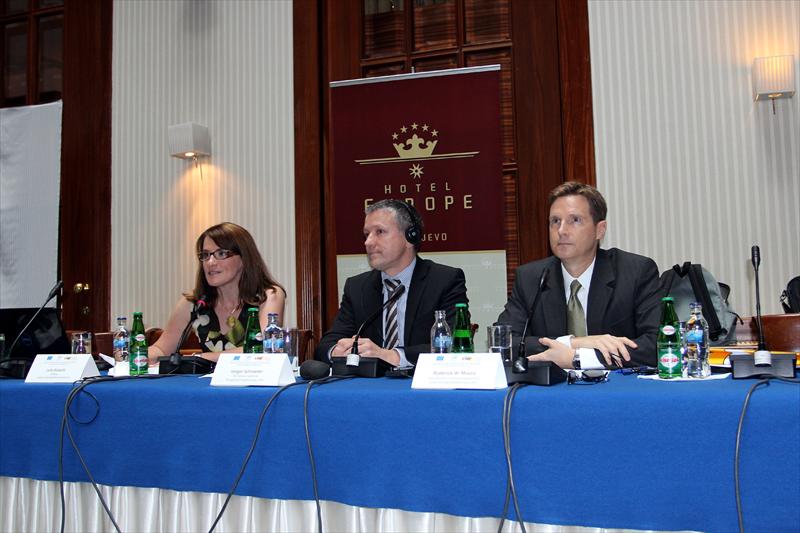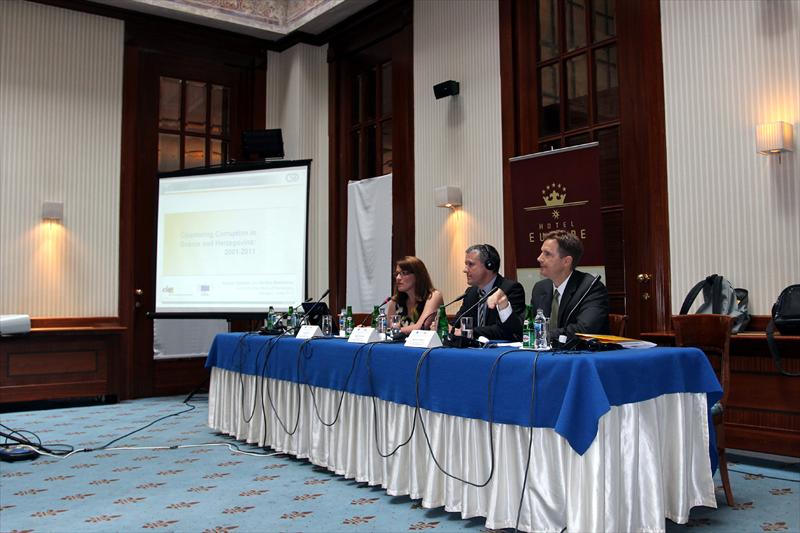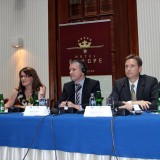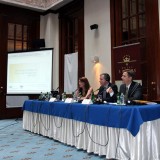Despite some progress in fighting corruption, such as creating specific bodies dedicated to countering corruption and adopting two anti-corruption strategies, Bosnia and Herzegovina still displays two major deficits for countering corruption: insufficient political will and little evidence of corruption-related justice. These contribute to the public’s growing distrust in Bosnia and Herzegovina’s institutions. Concerns over persistent corruption among key institutions like the police, customs, and selected ministries remain prevalent among citizens. The increased sensitivity of citizens towards corruption has resulted in a slight decrease in corruption practices. However, corruption pressure from the public administration has increased, and the society has grown more disillusioned with public institutions’ ability to tackle corruption effectively.
These are the findings from the Corruption Monitoring Report which was jointly presented at the Anticorruption Forum on 12 June 2012, by the Center for Investigative Reporting (CIN) from Sarajevo and the Center for the Study of Democracy (CSD) from Sofia. This Report presented a current assessment of corruption and anti-corruption developments in Bosnia and Herzegovina (BiH) for the period 2001-2011. This event was organised within the EU funded project “Empowering civil society in Bosnia and Herzegovina to fight corruption: new tools and regional knowledge sharing”.
Holger Schroeder, Head of Operations at the EU Delegation to BiH said: “The EU is very concerned with the level of corruption in Bosnia and Herzegovina. We have not yet seen sufficient determination to tackle corruption and Bosnia and Herzegovina has no time to loose. The EU is supporting Bosnia and Herzegovina to address key areas of the fight against corruption through the Instrument for Pre-Accession.”
Unemployment and corruption were the two largest concerns of citizens across all regions in the country. Compared to ten years ago, in 2011 even more people identified corruption as the second major problem in the country (i.e. 50% of the respondents).
Every surveyed profession was believed to be more corrupt in 2011 compared to ten years ago. Police officers were seen as most corrupt, which is a notable change from 2001, when the police ranked only 9th out of 19 institutions in terms of perceived level of corruption. Customs officers and their colleagues were also perceived as highly corrupt and ranked second. At the other end of the spectrum, and similar to 2001, teachers and journalists were still perceived as least corrupt. More specifically, respondents felt corruption was least widespread in primary education and the non-governmental sector.







